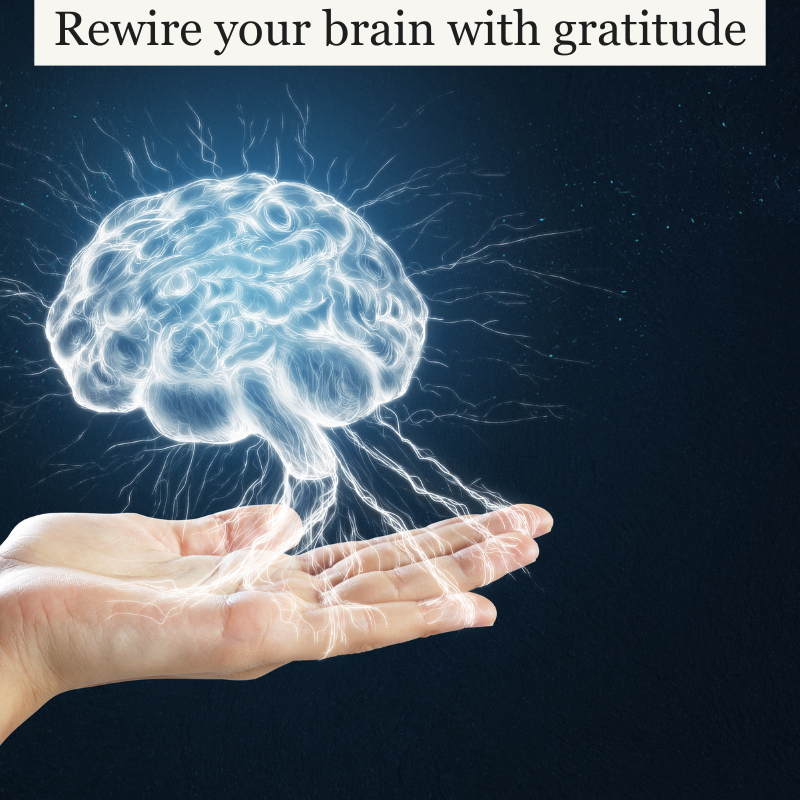Stressed and overwhelmed? Gratitude Might Be the Secret Weapon You’re Missing.

The silent killer, stress, gradually undermines all our health gains. Ignoring stress and inflammation negates the benefits of a healthy lifestyle. Instead of proactively addressing our persistent stress, we tend to passively assume that things will somehow resolve themselves with no effort on our part.
Pretending a problem doesn't exist won't make it disappear; it will probably get worse. It compounds. The long-term damages magically manifest as a sudden out of nowhere health problem.
Experiencing chronic stress raises your chances of developing heart disease by 27% due to increased blood pressure and heart inflammation. Premature death and all-cause mortality risk can be as high 63% even when we adjust for other health factors according to some research. With mental health, people who have high levels of stress are 2.5 times more likely to develop depression and struggle with emotional regulation. Just as a frog placed in slowly heating water will not react to the increasing temperature until it's too late, unreleased stress can insidiously build until it causes serious problems.
Practicing Gratitude.
I know the concept sounds fluffy and abstract, but trust me, it’s backed by science. The long term and consistent practice of gratitude lowers stress, enhances well being and improves mental health.
One study used advances MRI imaging to visualize the brains of certain individuals who practiced daily gratitude. The areas in the brain called the prefrontal cortex responsible for emotional regulation and resilience lit up like a Christmas tree, showing increased activity. Another study implemented a daily exercise of writing daily reason to be grateful. Cortisol levels, the stress hormone, measured before and after, showed a 24% reduction over a 4-week period. In 2022, patients with chronic medical conditions saw significant improvement in blood inflammatory markers, pain perception and quality of sleep after implementing daily gratitude rituals. When we experience gratitude, our bodies respond with measurable physical and chemical changes that are beneficial to our overall health and well-being.
The stress gratitude-loop
What explains gratitude's power? It’s almost like gaslighting. Use those bad thoughts to start your gratitude loop. When gratitude is felt, the brain's attention moves away from threat-detection circuits and toward pathways that are more focused on finding solutions to problems. Optimism is powerful.
Here’s how the loop works:
- Intentional focus on gratitude reduces emotional reactivity.
- Because of the shift in focus, the brain produces dopamine and serotonin, which enhances mood and resilience
- Your behavior changes because you become more adaptable in stress full situations by reinforcing gratitude
Similar to therapeutic techniques. It's called cognitive reappraisal. We are actively changing the way we think, replacing negative thoughts with positive ones to build strong mental resilience.
How to integrate gratitude in your life
Morning gratitude check. Before you get out of bed, list three things you are grateful for. Research shows if you do this at the beginning of the day, it will sharpen focus and mood.
Gratitude reframing
Use stress as a trigger for gratitude. When faced by those ominous day to day situations, pause and think of one small thing to appreciate in the moment. According to research, this will rewire your stress response.
Gratitude journaling
Spend five minutes writing three positive experiences from the day. Do it right before bed. This practice lowers cortisol stress responses and improves sleep.
Gratitude check in
I like this one the most and think it has the. It has the power to shift my mood despite all the stress of everyday life. Sending a heartfelt message to someone you appreciate once a week somehow seems to amplify the strength of social connection by deepening bonds and anchoring our well-being.
Closing Thoughts: The Power Is in Your Hands
It's easy to overlook how our thoughts affect our physical well-being. Optimized sleep, nutrition, and exercise are essential, but if our mental defenses against daily stress have cracks, the body suffers the downstream effects. Chronic stress leads to overeating, poor sleep, and even counteracts the benefits of exercise. Worse, we inherit the stress responses of our parents and are rarely taught how to manage emotions properly.
Gratitude is the lowest-hanging fruit with almost magical health properties. Never underestimate what your mind can do for your body. While stress is an unavoidable aspect of life, the manner in which you react to and manage stressful situations is entirely within your control, and you have the power to shape your response. Gratitude improves mood, reduces inflammation, and lengthens lifespan.
It’s time to stop letting stress control your health. Take five minutes today to practice gratitude, and watch how your life shifts. Sometimes, the smallest shift in perspective is all it takes to change a life. Let’s tap into key psychological and emotional triggers—and take back control.